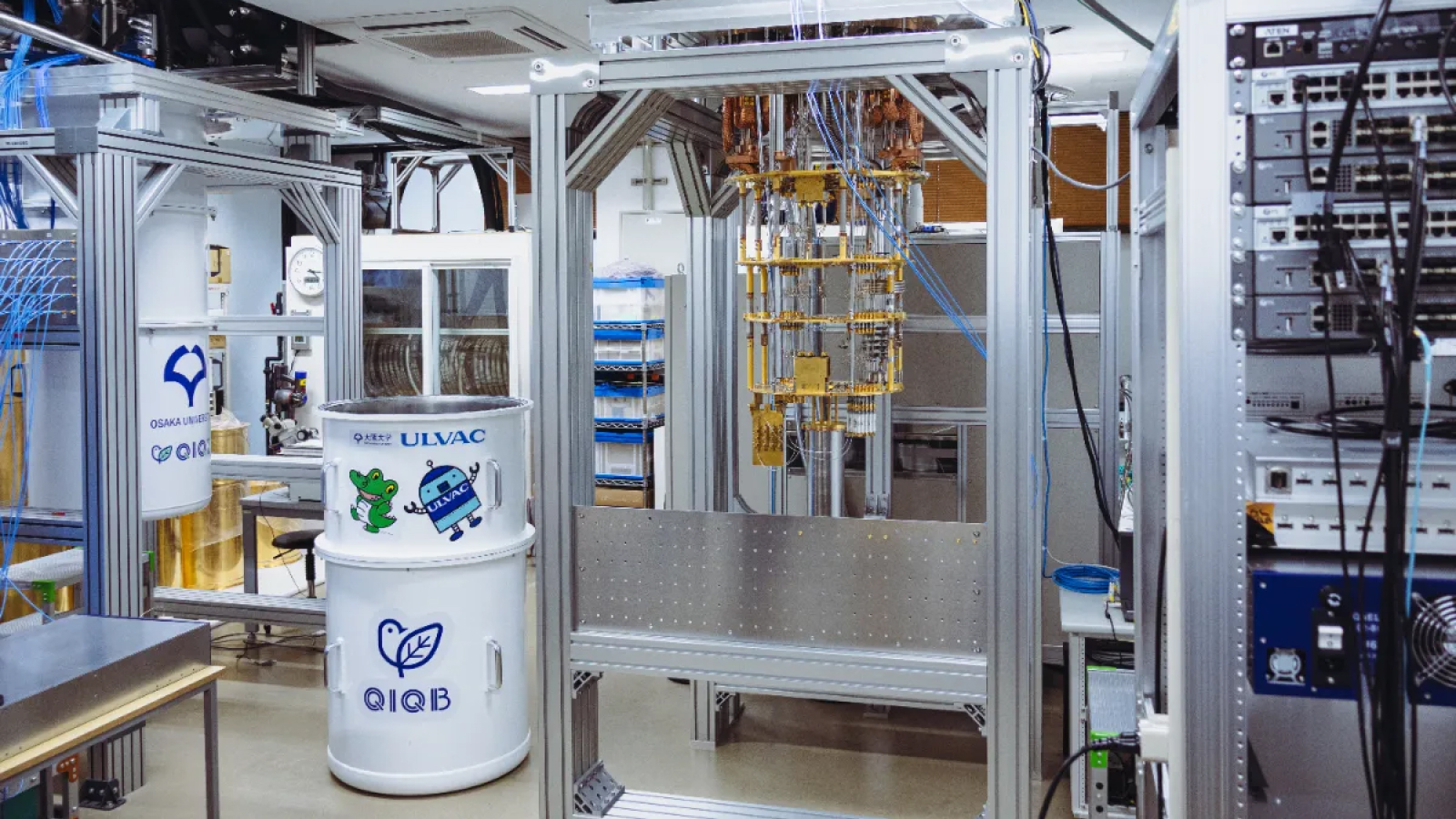Japan launches its first homegrown quantum computer
Japan's first entirely homegrown quantum computer uses superconducting qubits and components made entirely domestically.

Get the world’s most fascinating discoveries delivered straight to your inbox.
You are now subscribed
Your newsletter sign-up was successful
Want to add more newsletters?

Delivered Daily
Daily Newsletter
Sign up for the latest discoveries, groundbreaking research and fascinating breakthroughs that impact you and the wider world direct to your inbox.

Once a week
Life's Little Mysteries
Feed your curiosity with an exclusive mystery every week, solved with science and delivered direct to your inbox before it's seen anywhere else.

Once a week
How It Works
Sign up to our free science & technology newsletter for your weekly fix of fascinating articles, quick quizzes, amazing images, and more

Delivered daily
Space.com Newsletter
Breaking space news, the latest updates on rocket launches, skywatching events and more!

Once a month
Watch This Space
Sign up to our monthly entertainment newsletter to keep up with all our coverage of the latest sci-fi and space movies, tv shows, games and books.

Once a week
Night Sky This Week
Discover this week's must-see night sky events, moon phases, and stunning astrophotos. Sign up for our skywatching newsletter and explore the universe with us!
Join the club
Get full access to premium articles, exclusive features and a growing list of member rewards.
Japan has switched on the first quantum computer that has been designed and built with components from the country. The system is now ready to take on workloads from its base at the University of Osaka’s Center for Quantum Information and Quantum Biology (QIQB).
The new system, which went live on July 28, replaces all previously imported components with homegrown technologies, University of Osaka representatives said in a statement. It will also run on open-source software developed in Japan, called the Open Quantum Toolchain for Operators and Users (OQTOPUS).
The system uses a quantum chip with superconducting qubits — quantum bits derived from metals that exhibit zero electrical resistance when cooled to temperatures close to absolute zero (minus 459.67 degrees Fahrenheit, or minus 273.15 degrees Celsius). The quantum processing unit (QPU) was developed at the Japanese research institute RIKEN.
Other components that make up the "chandelier" — the main body of the quantum computer — include the chip package, delivered by Seiken, the magnetic shield, infrared filters, bandpass filters, a low-noise amplifier and various cables.
These are all housed in a dilution refrigerator (a specialized cryogenic device that cools the quantum computing components) to allow for those extremely low temperatures. It also comes alongside a pulse tube refrigerator (which again cools various components in use), controllers and a low-noise power source.
OQTOPUS, meanwhile, is a collection of open-source tools that include everything required to run quantum programs. It includes the core engine and cloud module, as well as graphical user interface (GUI) elements, and is designed to be built on top of a QPU and quantum control hardware.
Get the world’s most fascinating discoveries delivered straight to your inbox.
A new frontier of computing
Quantum computing has the potential to outpace the world's fastest supercomputers and solve problems by making calculations and running simulations far beyond what technology is capable of today. Scientists speculate that quantum computers could be useful in drug discovery, easing traffic flows through a city, and finding the best delivery routes for a logistics company, among plenty of other endeavors.
This is because it can process calculations in parallel, rather than in sequence, by tapping into the weird laws of quantum mechanics. The idea is that the more qubits added to a system, the more powerful the system becomes.
However, there are plenty of barriers to simply adding qubits to quantum computers — in particular, scientists are trying to solve the extremely high error rate that occurs during calculations. For this reason, most research is currently centered on quantum error correction (QEC).
Japan's first quantum computer was showcased at Expo 2025, held in Osaka from Aug. 14 to Aug. 20..At the exhibition, organizers showcased key components in the quantum computer. Visitors could connect to the system remotely through the cloud and run basic quantum programs. The exhibit also included interactive elements enabling visitors to explore quantum entanglement and other quantum phenomena.

Keumars is the technology editor at Live Science. He has written for a variety of publications including ITPro, The Week Digital, ComputerActive, The Independent, The Observer, Metro and TechRadar Pro. He has worked as a technology journalist for more than five years, having previously held the role of features editor with ITPro. He is an NCTJ-qualified journalist and has a degree in biomedical sciences from Queen Mary, University of London. He's also registered as a foundational chartered manager with the Chartered Management Institute (CMI), having qualified as a Level 3 Team leader with distinction in 2023.
You must confirm your public display name before commenting
Please logout and then login again, you will then be prompted to enter your display name.
 Live Science Plus
Live Science Plus










